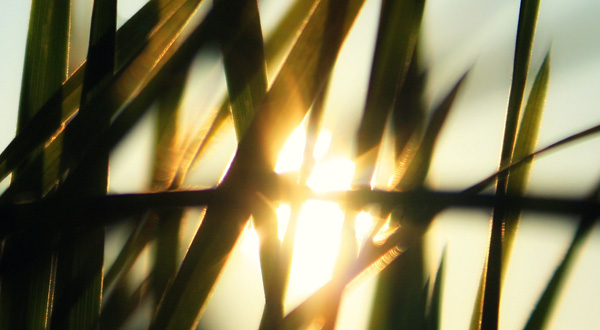The basic characteristics of a living organism. The main signs of wildlife
Modern science divides all of nature into animate and inanimate. At first glance, this division may seem simple, but sometimes quite difficult to decide whether a particular natural object is really alive or not. Everyone knows that the basic properties, characteristics of living – growth and reproduction. Most scientists use seven life processes or characteristics of living organisms, which distinguish them from inanimate nature.

What is a characteristic of all living beings
All beings
- Made of cells.
- Have different levels of cellular organization. Tissue - group of cells that perform a common function. Organ - group of tissues performing a common function. The organ system - group of organs that perform a common function. Organism - any living creature in the complex.
- Use the energy of the Earth and the Sun, which they need for life and growth.
- Respond to the environment. Behavior is a complex set of reactions.
- Grow. Cell division – the orderly formation of new cells that grow to a certain size, and then share.
- Multiply. Reproduction is not essential for the survival of individual organisms, but is important for the survival of the species. All living beings reproduce one of the following ways: asexual (production of offspring without the use of gametes), sex (the production of offspring by joining sex cells).
- Adapt and adjust to the environmental conditions.

Main features of living organisms
- Movement. All living things can move and change their position. This is more evident in animals that can walk and run, and less obvious in plants, parts of which can move to track the sun's movement. Sometimes the movement can be so slow that it is very difficult to see.

- Breathing is a chemical reaction that occurs inside cells. This process of releasing energy from food substances in all living cells.
- Sensitivity - ability to detect changes in the environment. All living creatures capable of responding to such stimuli as light, temperature, water, gravity and so on.

Recommended
"Knowledge is light and ignorance is darkness": the value, meaning and alternatives
There are some sayings that would seem to need no explanation, such as “teaching & ndash; light and ignorance – darkness”. But some still do not understand their meaning. But not only for such people is written by our article. I...
What was invented by Mendeleev for the army. The history and fate of the invention
D. I. Mendeleev was a brilliant Russian scientist-polymath, who made many important discoveries in various fields of science and technology. Many people know that he is the author of “Fundamentals of chemistry" and the periodic law of chem...
The origin of the Slavs. The influence of different cultures
Slavs (under this name), according to some researchers, appeared in the story only in 6 century ad. However, the language of nationality bears the archaic features of the Indo-European community. This, in turn, suggests that the origin of the Slavs h...
- Growth. All living things grow. The constant increase in the number of cells and size of the body is called growth.
- Reproduction - ability to reproduce and pass on genetic information to their offspring.

- Excretion - getting rid of waste and toxins. As a result of many chemical reactions in the cells, it is necessary to get rid of metabolic products, which can poison cells.
- Power - consumption and utilization of nutrients (proteins, carbohydrates and fats) needed for growth, tissue repair and energy. In different species it's different.

All living beings are composed of cells
What are the key attributes of a living organism? First of what makes living organisms unique is that they all consist of cells, which are considered the building blocks of life. Cells are amazing, despite their small size, they can work together, making this large body structures like tissues and organs. Cells are specialized - for example, liver cells are in the same body and brain cells function only in the head.
Some organisms are made of just one cell, for example, many bacteria, while others are composed of trillions of cells, e.g., human. Multicellular organisms are very complex beings, unique cellular organization. This organization began as a DNA and stretches across the entire body.
Reproduction
The Main features of living things (biology describes it even in the school course) include also such a thing as reproduction. How all living organisms fall to the Ground? They do not appear out of thin air, but by reproduction. There are two main ways of producing offspring. First – all known sexual reproduction. This is when organisms produce offspring by combining their gametes. People and many animals fall into this category.
The Other type of reproduction is asexual: organisms produce offspring without gametes. Unlike sexual reproduction, where offspring have a different genetic makeup, not like any of the parents, asexual method produces offspring that are genetically identical to its parent.
Growth and development
The Main features of living things also imply growth and development. When the offspring is born, it does not stay like this forever. An excellent example may be the man himself. In the process of growing people change, and the more time that passes, the more these differences are noticeable. If compare adult man and child, whom he once came to this world, the difference is just enormous. Organisms grow and develop throughout life, but these two terms (growth and development) do not mean the same thing.
Growth - when changing size from small to large. For example, with age grow all the organs of the living body: fingers, eyes, heart and so on. Development implies the possibility of change or transformation. This process begins before birth, when pojavljaetsja the first cell. 
Energy
The Growth, development, cellular processes and even reproduction can happen only if the organisms can take and use energy, which is also included in the basic signs of a living being. All of life's energy ultimately coming from the sun, and this force powers everything on Earth. Many living organisms such as plants and some algae use the sun to produce their own food.
The Process of converting sunlight into chemical energy is called photosynthesis and the organisms that are able to produce, are called autotrophs. However, many organisms cannot create their own food on their own, so they have to eat other organisms for energy and nutrients. Organisms that eat other organisms are called heterotrophs.
Response
Listing the basic signs of wildlife, it is important to note the fact that all living organisms possess the ability to react in a certain way to various stimuli of the environment. This means that any changes in the environment trigger specific reactions in the body. For example, carnivorous plants like the Venus flytrap, bloodthirsty, close their petals rather quickly, if there will land the unsuspecting fly. If possible, the turtle will bask in the sun and will not remain in the shadows. When a person hears the rumbling in my stomach, then he goes to the fridge to make a sandwich, and so on.
Stimuli can be external (outside the human body) or internal (inside the body), and they help living organisms to maintain balance. They are presented in the form of various sense organs in the body, such as: sight, taste, smell and touch. The speed of response may vary depending on the organism.
Homeostasis
The Main signs of living organisms include regulation of the internal environment called homeostasis. For example, temperature regulation is very important for all living beings, because the temperature of the body is affected to such an important process, as metabolism. When the body becomes too cold, these processes slow down and the body can die. The opposite happens when the body overheats, the processes are accelerated, and all this leads to the same disastrous consequences.
Article in other languages:
KK: https://tostpost.com/kk/b-l-m/25392-neg-zg-belg-ler-t-r-a-za-neg-zg-belg-ler-t-r-tabi-at.html
PL: https://tostpost.com/pl/edukacja/25322-g-wne-cechy-ywego-organizmu-g-wne-objawy-przyrody.html

Alin Trodden - author of the article, editor
"Hi, I'm Alin Trodden. I write texts, read books, and look for impressions. And I'm not bad at telling you about it. I am always happy to participate in interesting projects."
Related News
Chronic heart failure: classification, treatment
circulatory Failure (NC) – it is a pathological condition in which the blood to the organs of the human body in the right quantity not delivered. Due to a malfunction in the cardiovascular system the human body cannot proper...
What is the polysemy of the word? The value
each word has a lexical meaning. This is what we imagine in your mind when you hear or read it.for Example, concepts such as ‘autumn, leaf fall”.some words lexical meaning is one. For example, “leaf fall” &...
Athenian society in the sixth century BC, has undergone a number of changes. This time got the name “the great period of Athens” and was characterized by the increase of the population which was engaged in trade ...
If placed in a magnetic field of any item, it is “behavior” and the type of internal structural changes will depend on the material from which the object is made. All known substances can be divided into five main grou...
"Who?", "what?" - what case answers these questions? Forms of the instrumental case
Nouns in the Russian language incline. To avoid mistakes in spelling unstressed endings in words must be the case. It needs to put to the noun question. The spelling of endings depends in what case is the word. You must also be ab...
Examples of inferences. What is the conclusion? Direct inference
What is the conclusion? It is a certain form of thinking and the only correct conclusion. The reality is that in the process of learning it becomes clear that claims are prompted by evidence, not all are true, but only a certain p...






















Comments (0)
This article has no comment, be the first!